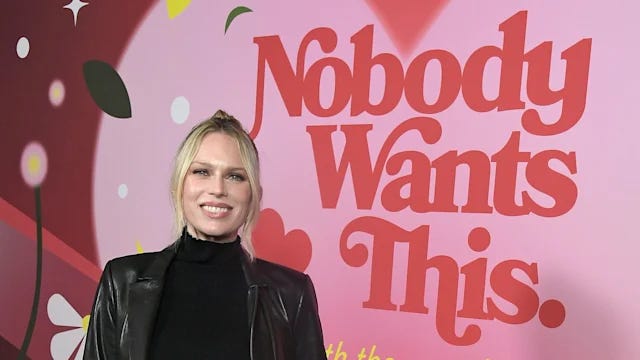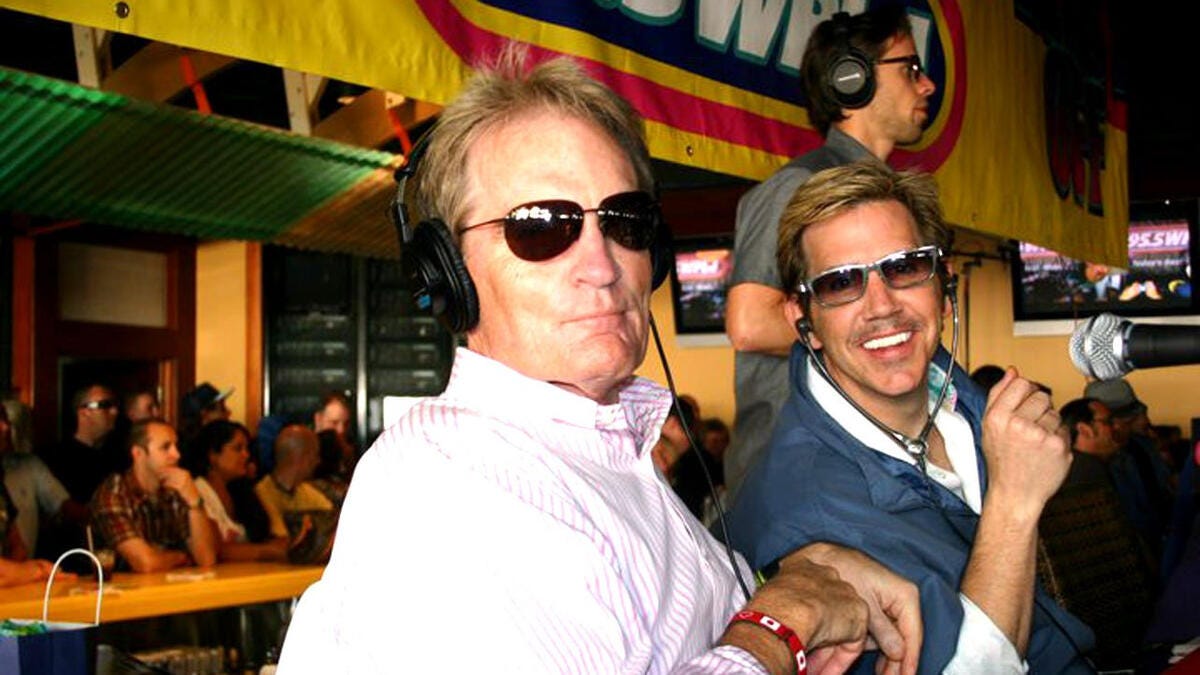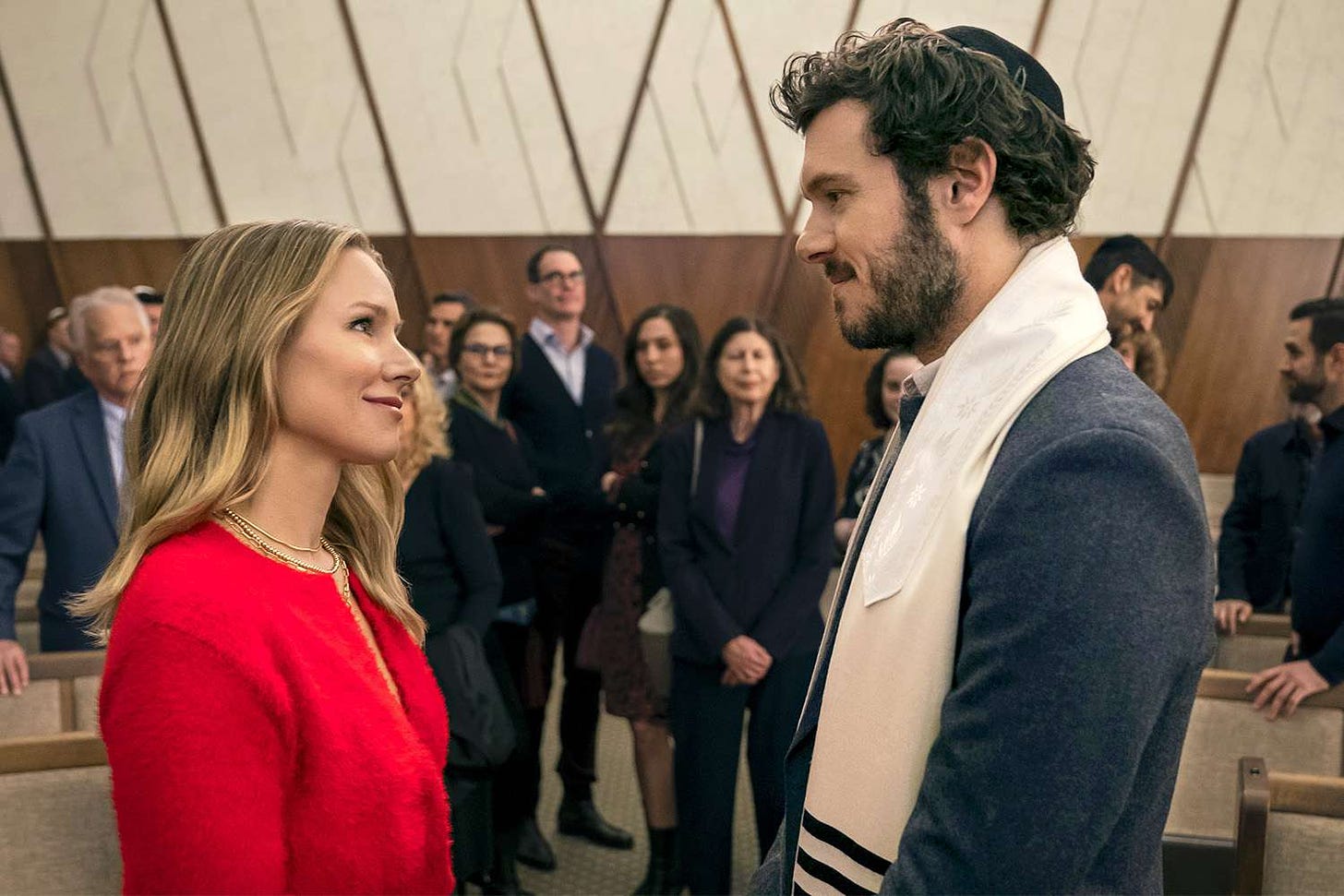Radio taught me: Our biggest wins often come from letting others shine.
Radio taught me: Our biggest wins often come from letting others shine.
After years as a radio producer, I’ve learned one fundamental truth that’s shaped both my career and personal growth: sometimes, it’s not about you. In fact, most times, it’s not about you at all. Take a deep breath; it’s going to be okay.
The other day I heard about Erin Foster, creator of the Netflix mega-hit “Nobody Wants This,” who faced a tough decision: step aside from starring in her own creation or potentially watch it never reach its full potential.
Her story resonated with me because, after years as a radio producer, I’ve learned the same fundamental truth that Erin ran into: Sometimes, it’s not about you. In fact, most times, it’s not about you at all.

Every morning, as I sat behind that board watching Scott Shannon & Todd Pettengill entertain millions of listeners, I was reminded of this lesson. The audience knew the voice on the air, but they didn’t know the person behind the glass working tirelessly to make the magic happen. And you know what? That was exactly as it should be.
I remember countless moments when I’d come up with what I thought was the perfect comedy sketch or come up with a topic that would light up the phone lines. As these ideas went to air and blew up, there was never a social media storm asking, “Who came up with that brilliant bit?” No one was clamoring to know the producer’s name. But that was okay—more than okay, actually. It was part of the beauty of the role.

Early in my career, I had to make a crucial decision: Would I let my ego get in the way of the show’s success, or would I embrace my role as the invisible hand guiding things from behind the scenes? I chose the latter, and it was one of the best decisions I’ve ever made.
You see, being a radio producer taught me that success often means being the person who makes others look good. It’s about understanding that your brightest ideas might shine best when delivered through someone else’s voice. The powers that be—the program directors, the station managers – they knew who was behind the great segments and creative concepts. Their recognition, though private, was enough.
Working with on-air talent requires a special kind of humility. There were days when I had to manage egos, navigate complex personalities, and find ways to make ideas work without taking credit for them. It’s a delicate dance—you need to be confident enough to stand behind your ideas but humble enough to let others take center stage.
Remember that story about Erin Foster I mentioned earlier? The full picture is even cooler. Erin had written the lead role in “Nobody Wants This” for herself – it was her story, her vision, her creation. But when Netflix bought the show, they had different plans. They were adamant about casting Kristen Bell in the role, regardless of Erin’s original desires.

In a recent Harper’s Bazaar interview, Erin mentioned how Kristen herself recognized the weight of this moment, telling her, “I know you wrote this for yourself to be in. I’m not comfortable taking this role away from you.” Erin’s response? “Well, first of all, it doesn’t sound like I really have a choice, so let’s do this.”
That story perfectly mirrors countless moments I faced in radio. Just as Erin had to watch someone else bring her character to life, I’ve watched hosts deliver my ideas, tell my jokes, and bring my concepts to life. And just like her show’s success validated her decision, the success of our radio show validated my approach to production.
Through years behind the board, I’ve discovered that true professional growth often comes wrapped in humility. Here’s what my experience has taught me:
1. Your best work might be anonymous – and that’s perfectly fine. The impact matters more than the credit.
2. Trust builds success – When your team knows you’re focused on the show’s success rather than personal glory, they trust you more and the whole operation runs smoother.
3. Recognition finds its way – The right people notice quality work, even if it’s behind the scenes. My supervisors always knew the source of our best content.
4. Creativity thrives without ego – When you’re not worried about who gets the credit, you’re free to focus on what really matters: creating something amazing.
Looking back on my years in radio, my proudest moments aren’t tied to getting a gold star. They’re the mornings I heard perfect execution of a bit I planned, the times Scott or Todd knocked it out of the park with an idea I came up with, or the days when everything clicked and our listeners got exactly what they needed—whether they knew I was involved or not.
In an era of personal branding and constant self-promotion, it might seem counterintuitive to champion the virtue of being secondary. But I’ve learned that true success often comes to those who are willing to be the force behind the scenes, the support behind the star, the person behind the glass.
Because at the end of the day, it’s not about who gets the credit. It’s about creating something meaningful, something that touches lives and makes a difference. And sometimes—actually, most times—achieving that means being comfortable with the fact that it’s not about you at all.